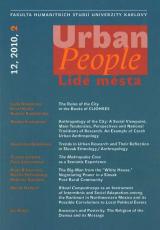The Roles of the City in the Books of CLIOHRES
DOI:
https://doi.org/10.14712/12128112.3606Klíčová slova:
cities, communities, culture, identities, frontiers, spatial scales, CLIOHRES NetworkAbstrakt
Through an analysis of the approach to the concepts of frontiers and identities in four books of the CLIOHRES Network the authors of this article found a very up-to-date contribution to the broad understanding of urban history. The article suggests pondering about current paths of the specific research field of urban history, which is not easy to define. The city itself was not the object of research of the members of the network, but rather a space for analysis of more general questions. Although the focus on the city was often instrumental, the authors understood its paradigmatic function. The analysis highlighted intensive interest in spatial scales and questioning of the two key concepts of frontiers and identities simultaneously in interaction. The urban perspective was not felt as a reduction or limitation. Frontiers and identities played a key role, even if they were not in focus. During the last two or three decades the research field of urban history went through considerable transformation. Some urban historians even speak about its semantic expansion. While classical urban historiography focused on the city and urban society as an object of analysis, current research very often studies past societies only through the optics of the life of cities. The microcosm of cities is explored as a showcase of the society or only as its sample, as a representation of the society of the period or of its mentali¬ty. These new approaches to urban studies are present in the books analyzed in the following pages.
Stahování
Publikováno
Jak citovat
Číslo
Sekce
Licence

Tato práce je licencována pod Mezinárodní licencí Creative Commons Attribution-NonCommercial-NoDerivatives 4.0.


